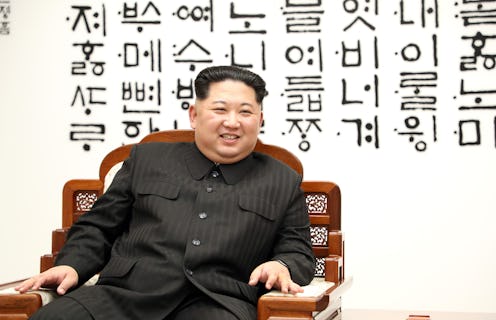News
The Ways North Korea Reportedly Makes Money Unveils A Whole Other Side Of The Country

There are so many things the American people don't know about North Korea, and that's probably how the country wants to keep it. The communist nation is secretive and isolated, with almost no presence in the global financial system. Yet, somehow, North Korea makes money by taking advantage of global resources, according to CNBC. It's what has allowed the ruling Kim family over the years to feed a growing nuclear program.
The biggest bankroller of the country's relatively small funding is China, according to U.S. News & World Report. Located directly north of the communist nation, China makes up more than 80 percent of North Korea's foreign trade and has the power to cut off the country's food and energy supplies, according to the Washington Post. China also has a vested interest in propping up North Korea; if the regime were dismantled, the chaos could result in a rush of refugees to China's northeastern area, a region that is already economically weak.
"China has enormous leverage to influence stability in North Korea, but most of it they feel they cannot use because of adverse consequences for China interests in North Korea," said Scott Snyder, director of the Program on U.S.-Korea policy at the Council on Foreign Relations, to CNBC.
It's a position that President Trump has tweeted about, recognizing the importance of China's role in reigning in North Korea.
As a trade partner to China, North Korea is believed to make the most money from selling millions of tons of coal to the Chinese government. According to CNN, the sales made up about a third of official exports in 2015. On top of coal, North Korea also exports other materials, like iron, seafood, clothing — and even its own people. The regime sends thousands of North Koreans over its borders as forced labor to places like China, Russia, and the Middle East, according to CNN, citing a 2015 United Nations report. The laborers are coerced into working shifts that can last as long as 12 hours, six days a week, but up to 90 percent of their pay is sent back to North Korea, according to Reuters, per European Alliance for Human Rights in North Korea.
North Korea is believed to keep large amounts of money in China as well; by doing so, Kim can sidestep financial sanctions more easily. According to CNN, investigations have shown that North Korea uses a web of front companies to make its way into world banks. The regime has not publicly responded to reports on these accusations.
Another source of money that North Korea relies on comes from its weapons deals. According to CNBC, North Korea has arms trade agreements with African countries. North Korea has built weapons factories in several African countries, including Madagascar and Ethiopia while also selling ballistic-missile manufacturing lines to Egypt and Libya, CNBC reported, attributing the findings to an Institute for Security Studies report. A United Nations report from 2016 revealed Pyongyang was shipping ballistic missile-related items to the Middle East and Africa. Many African countries aren't under the same U.N. sanctions as the rest of the world, and making deals with these countries may be a way that Kim gets around those sanctions.
Then there's, ironically, North Korea's cybercrimes. For a country that chokes off access to technology for its people — The Sun reported that citizens can only access a scrubbed-down internet with mostly propaganda sites that still depends a dial-up connection — it's sophisticated when it comes to digital attacks. According to CNN, North Korea has been linked to financial institution hacks in 18 countries, including this big one in Bangladesh. The New York Times reported that North Korea has successfully stolen hundreds of million of dollars while causing chaos in first world countries. The North Korean government has denied having anything to do with these cyber attacks, according to The Straits Times, a Singapore-based newspaper.
Finally, the North Korean government is believed to peddle something usually reserved for dingy alleyways and college dorm rooms: drugs. The North Korean government reportedly trafficks out large quantities of crystal meth to raise foreign currency for its slush fund, often smuggling narcotics across the border to the northeastern area of China, according to The Daily Beast. However, there hasn't been any confirmed state-sponsored drug smuggling since 2004, leading a U.S. State Department report to conclude that “state-sponsored trafficking may have ceased or been sharply reduced, or that the DPRK regime has become more adept at concealing state-sponsored trafficking of illicit drugs.” North Korea denies exporting meth, according to Vice.
The hermit kingdom's ways of making money to compete financially on the world stage is consistent with what the world knows about it. But if the upcoming summit with the United States goes well, it could be a gamechanger and the first step in pushing North Korea toward a more transparent government.